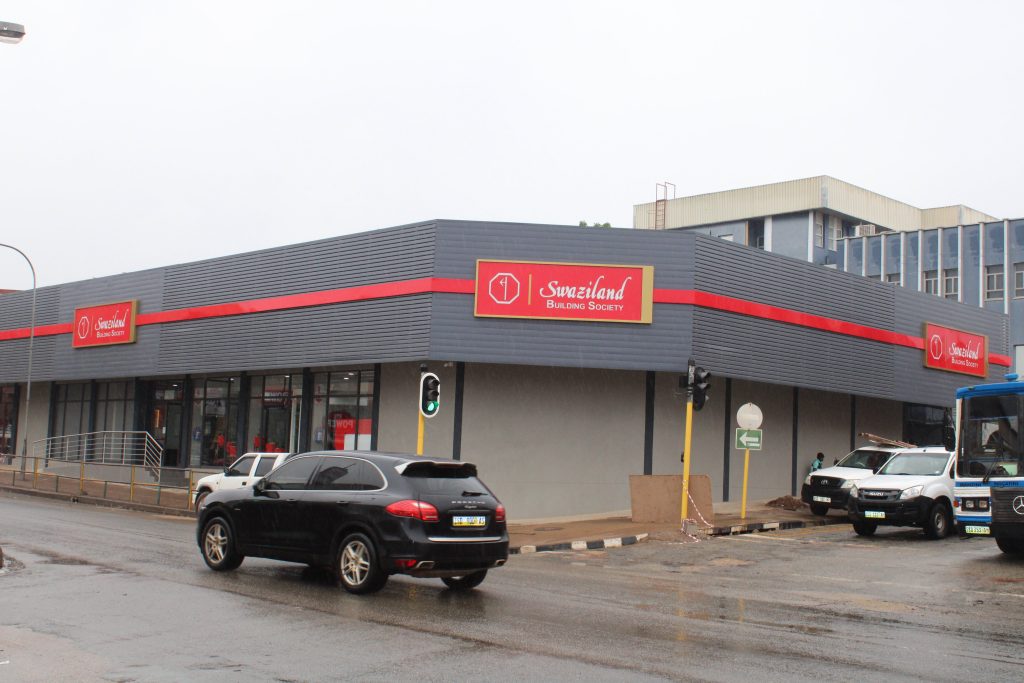By Ncaba Ntshakala
The Swaziland Building Society (SBS) has announced that it now holds reserves exceeding E500 million, alongside customer deposits surpassing E1 billion.
This was confirmed by Managing Director Mbali Sibanyoni during a media briefing held at the Open House Hotel in Mbabane.
The announcement was in response of SBS’s readiness to transition from a building society to a full-fledged commercial bank, a move it has been preparing for since 2012.
The briefing also highlighted SBS’s current stage in the lengthy conversion process and outlined the critical steps leading to the decision.
The transformation from a society to a bank, Sibanyoni shared, has been a strategic goal for over a decade. SBS embarked on the process in 2012, but the decision will ultimately rest with its members.
On November 15th, members will convene for a Special General Meeting (SGM) at the Zakhele FEA Auditorium in Manzini, where they will cast their votes on whether SBS should officially transition to a bank.
RELATED:Swaziland Building Society set to become a fully-fledged commercial bank by 2025
Should the members endorse this change, the next phase involves obtaining final regulatory approval from the Central Bank of Eswatini (CBE).
Sibanyoni clarified that the Central Bank must ensure all stakeholders support the conversion before greenlighting SBS’s new status.
On this step, she emphasized the transparency and commitment SBS has shown by engaging members through educational initiatives, held in person across the Kingdom’s four regions and virtually.
“We believe it’s very important to walk this journey together,” Sibanyoni remarked when addressing the media.
“Sustainability, competitiveness, and an expanded service range are our key motivations, as we aim to strengthen our ability to serve emaSwati.”
Sibanyoni’s remarks hinted at SBS’s strategic intent behind the conversion, explaining that the building society had faced constraints in a rapidly evolving financial sector.
As a commercial bank, SBS would be empowered to provide a broader array of products to its clientele, from individual depositors to larger enterprises.
The shift was said to ensure that SBS remains competitive, especially given the limited market space within Eswatini’s banking sector.
Again, Sibanyoni shared on the importance of member education in the conversion process and how the management team had dedicated extensive time over the past three months to engage members directly, addressing their questions and concerns.
“We’ve done member education across all four regions, not only through physical meetings but also through virtual channels to make sure we reach as many members as possible,” Sibanyoni said.
Members of the media at the briefing raised probing questions about SBS’s financial standing and member concerns.
They sought assurance on whether SBS had sufficient capital reserves to establish itself as a commercial bank.
RELATED: Central Bank uncovers mortgage lending irregularities
Addressing this, Sibanyoni emphasized that SBS holds over E500 million in reserves, which would serve as a solid foundation for the transition.
Additionally, media representatives asked how SBS would balance its traditional role in serving grassroots clients and informal traders with the new commercial bank mandate.
SBS has historically been recognized as a community-oriented institution which offers accessible financial services to people from various economic backgrounds, including informal traders.
Sibanyoni assured the media that SBS’s commitment to inclusivity would remain intact. She emphasized that the institution’s goals were rooted in supporting all emaSwati, and the new structure as a bank would enable SBS to enhance economic opportunities for clients from all economic levels.
“We want to build wealth for everyone,” the Managing Director stated where she affirmed SBS’s devotion to empowering smaller businesses and local traders.
She acknowledged that the transition would bring changes but reassured the public of SBS’s dedication to a seamless transformation that benefits its diverse customer base.
The prolonged nature of the conversion process also drew questions. Media personnel expressed concerns that the delay might have been influenced by regulatory or institutional challenges, raising questions about whether other financial institutions faced similar hurdles.
While acknowledging the extended timeline, Sibanyoni made emphasis on SBS’s resilience and adherence to regulatory requirements, stating that the building society had fully met all compliance measures set by the Central Bank.
